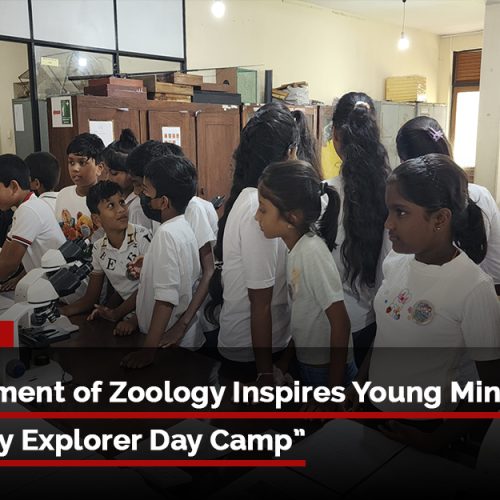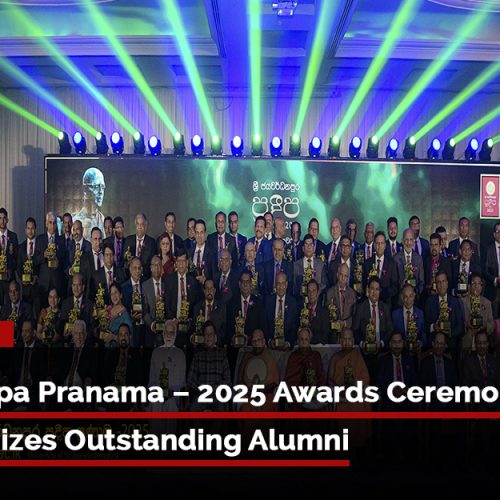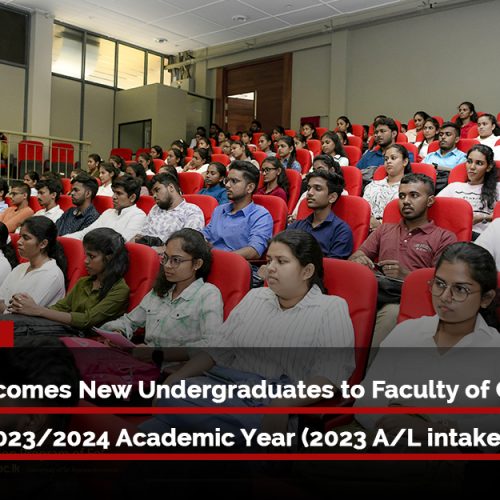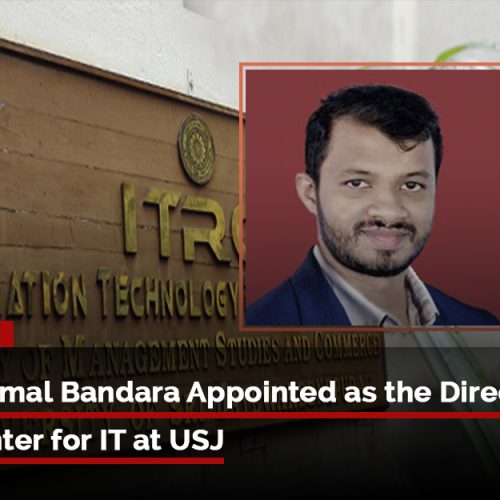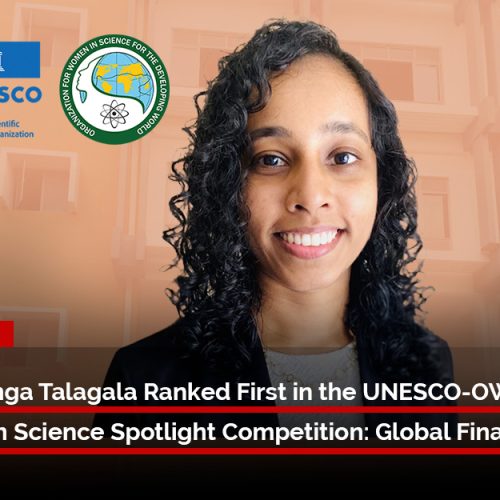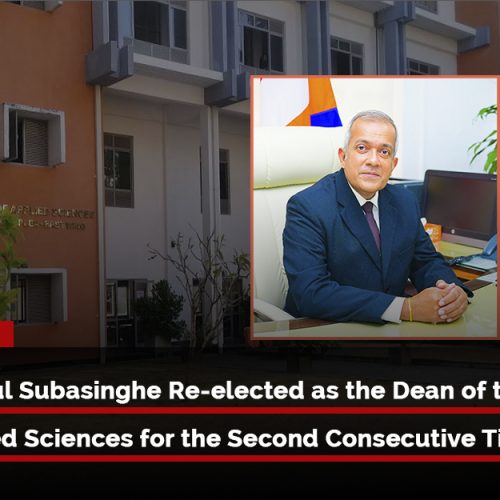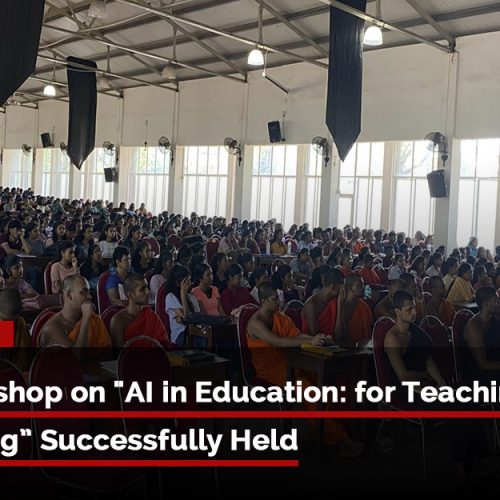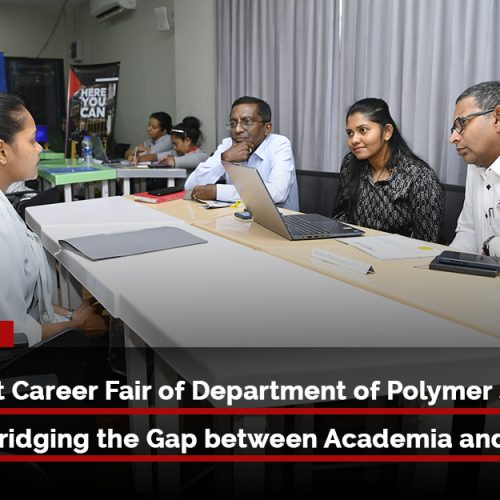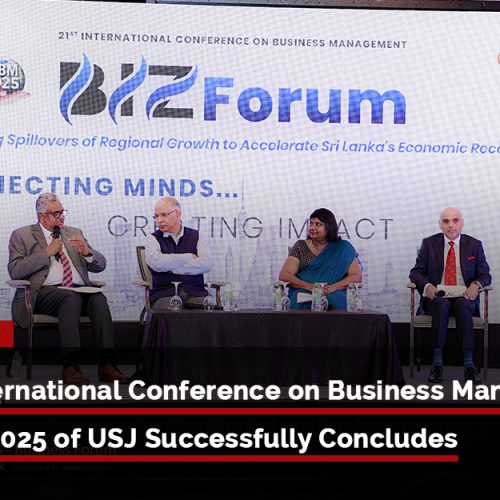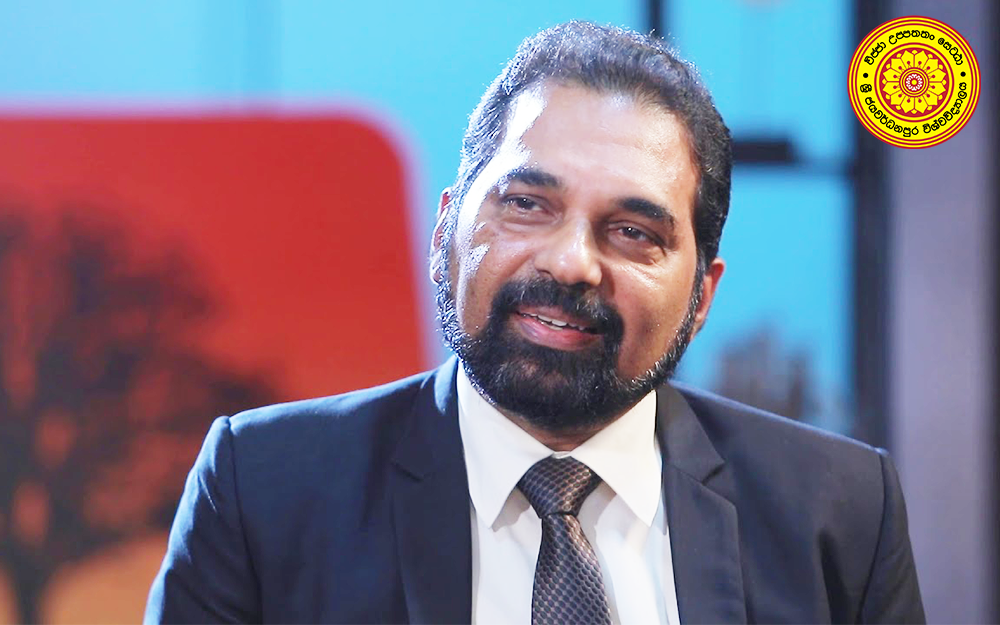
President J.R. Jayewardene, performing the Chancellor’s function, in 1984, of presiding over the Silver Jubilee Convocation of the rebranded Vidyodaya University as the University of Sri Jayewardenepura, prognosticated that Sri Lanka could win the 21st century if and only if the country could go for science and new technologies
(available at: http://dr.lib.sjp.ac.lk/bitstream/handle/123456789/8284/12th%20convocation%20speech.pdf?sequence=1&isAllowed=y).
He wanted the local universities to reorient their programs to deliver this to the nation. One of the examples he cited was that the Mahaweli Project which was being accelerated to be completed in six years at that time could produce more rice but unless the farmers were introduced to new technologies, they would remain poor forever. He therefore urged universities to introduce courses in new technologies such as those in bio-technology. This remained only a wish of a head of state nearly for three decades until it was converted to fruition by a team of academics who worked for it painstakingly after taking over the responsibility for managing the University of Sri Jayewardenepura, commonly known as USJ. That team included Dr. N.L.D. Karunaratne, Vice Chancellor, Senior Professor Sampath Amaratunga who succeeded him as Vice Chancellor and Senior Professor Sudantha Liyanage who wears two hats now, those of Acting Vice Chancellor and Dean of Faculty of Technology. The new Faculty of Technology was established some three years ago, but its new state of the art building was declared open only recently at the Techno-city in Pitipana, Homagama.
USJ has embarked on this enterprise at a time when Sri Lanka is critically in need of getting into new technologies. The world is now moving into the Fourth Industrial Revolution or 4IR in which the production processes would be turned upside down with cutting-edge technologies. The technologies that form the main part of 4IR are artificial intelligence or AI, robotisation, use of advancements in internet such as Internet of Things, nanotechnology, gene coding and editing and algorithmic inventions such as the Blockchain, to mention but a few. Sri Lanka is still in the Second Industrial Revolution or 2IR in which production is done basically by using mechanical and electric operations. Hence, it needs to ‘leap-frog’ the Third Industrial Revolution or 3IR to 4IR straightaway.
Sri Lanka has just crossed the threshold of an upper middle-income country and should avoid the biggest problem which such countries face. That is being snared in what is known as the middle-income country trap, an ailment that has prevented them from becoming high income countries due to lack of technology to compete with the developed Western world. The secret behind beating the middle-income country trap, therefore, lies in their ability to acquire and use high technology in production, marketing and distribution. Since Sri Lanka’s present capacity to develop its own technology is low, initially, it will have to acquire technology developed in other countries. This was the strategy adopted by successful beaters of the trap such as South Korea, Singapore, Taiwan and Hong Kong in their initial phases of industrialization. But later, they went for developing their own technologies by aligning universities and research institutes to industry and thereby developing a strong research, development and enterprising culture within the respective economic systems. Sri Lanka has no choice but to go through these phases not one after the other but simultaneously. To attain this goal, several universities in the forefront, namely, USJ, Colombo and Moratuwa, have been afforded with a seat in the Techno-city at Pitipana. Now, the government has to encourage leading industrial ventures in the country to move their research arms to Pitipana so that they could work in collaboration with the three Faculties of Technology to be established there.
Senior Prof. Sudantha Liyanage; former Dean of the Faculty of Technology and Faculty of Applied Sciences and the Acting vice-chancellor of the University of Sri Jayewardenepura described the story of the faculty of technology coming to USJ, “It’s the story of many people working within the university as a team as well as three governments continuing with the same policy. The idea of setting up of a Faculty of Technology at USJ was mooted by the then Minister of Higher Education, Dr. Bandula Gunawardena, in 2013. The government provided a fund allocation for this purpose in the same year. But this policy was continued unchanged even after there was a change in the government in 2015.”
“We earlier had the idea of setting up this faculty close to USJ’s main campus. But Minister Patali Champika Ranawaka of the new government allocated 20 acres to USJ from the proposed Techno-city in Pitipana and coaxed us to go there. Similar land allocations were made to Colombo and Moratuwa too. The objective was for these universities to have close liaison and collaboration with industry which too had planned to set up tech incubators there. The building complex was put up in this site and it was declared open by the new government” This was indeed a rare occasion of governments of different hues following a consistent policy relating to higher education. It shows the importance assigned to technology in the policy objectives of the governments in power.
For economic growth to sustain, universities which come up with new things – called inventions – should team with industry which converts such inventions into commercially viable products. This latter part was named ‘innovation’ by the Austrian-American economist Joseph Schumpeter. Therefore, inventions and innovations should go hand in hand if inventions are to serve a nation. What this means is that universities and research institutions should necessarily build a link with industry as it has happened in the Advanced Manufacturing Research Centre or AMRC set up around the University of Sheffield in the UK (available at: https://www.amrc.co.uk/). In this facility more than 110 industrial members have got linked with the researchers of the University of Sheffield to innovate inventions created by the latter. The new Faculty of Technology of USJ, and also those of Colombo and Moratuwa, should necessarily follow this model.
Senior Prof. Sudantha Liyanage also stated about linking the Faculty with industry, “We’re planning to do it at two levels, namely, at undergraduate and research levels. One of the problems which Sri Lankan graduates face today is that they’re not accepted by private industry. The reason for it is that industry has lost trust in graduates. Therefore, we must first undertake a trust building exercise. But this cannot be done overnight and it should evolve over a period of time.”
“Industry should begin to trust graduates and graduates should have confidence to work in private industry. The university is now creating a bridge for both parties to cross each other’s path. We started it first with our Faculty of Applied Science. There, it is compulsory for students to serve an internship with recognized private firms. This had been the case with the Faculty of Management Studies and Commerce too for a long time. We’ve extended it to Faculty of Technology and are presently exploring the possibility of assigning our students in the Arts Stream too to private and state sector organizations for internships.”
“Our experience is that when students begin to work in a private company, the management realises that their long-held opinion about them is ill-conceived. The lost trust is then gradually regained. Students too get an opportunity to work with confidence in private businesses. It changes the mindset of students who are normally anti-business. In the case of the Faculty of Technology, the period of internship is a little longer one covering both the third and fourth years. Once these students pass out from the university, they’re fully immersed in the private sector work cultures and in a position to make the best contribution to the national economy.”
“First of all, we must find out what industry wants and for that purpose, we’ll conduct a comprehensive survey of industry. Then, we should develop internal capacity to turn out products which industry wants. For that, we’ve decided to recruit only those who have a doctorate to our staff in the Faculty of Technology.”
“In that way, we’re planning to create a critical pool of researchers among our academic staff who are capable of delivering what the industry needs. When I was the Dean of the Faculty of Applied Science, we recruited to the Faculty mostly those who are with a doctorate. This is now being applied to Technology Faculty fully. Our intention is to make our presence known to industry, earn its trust and then work together to attain a common goal. That is to contribute to national development by being an important partner of the new tech era in the country.”
Senior Prof. Sudantha Liyanage confidently stated that finding suitable researchers with a doctorate for recruitment to the Faculty might be challenging but not impossible. “In the current context, we’ve to deliver what is expected of us as quickly as possible. We can’t sit on it for years. The nation is impatient and prolonging the delivery of our products is extremely costly to us as well as to the economy. Hence, in the Faculty of Technology, we can’t follow the old model of recruiting fresh graduates and then sending them abroad for higher studies which is costly in terms both time and money.”
“In addition, there’s a tendency now that those who leave the country for doctorates do not return. We can’t take that risk either. There are a large number of such researchers working in other places. Since university remunerations are relatively better today, we can easily lure them to the university if we develop a better working environment. This’s exactly what we’ve done. Presently, we’ve 41 researchers with a doctorate at the Faculty of Technology. We’ll gradually increase this number thereby creating a critical pool of researchers in the Faculty.”
USJ is uniquely placed to lead the country in its new journey to be a technology-based economy. It has been able to inculcate a research friendly culture in its core researchers. It has, in preparation for its new role, established a Research Council overlooking research work at the university and under the Council, nine new research centres. Some research centres have established research collaboration arrangements with world famous universities like Oxford, Duke, North Carolina, National University of Singapore and Taiwan’s National Cheng Kung University.
News source : http://www.ft.lk/columns/Senior-Prof-Sudantha-Liyanage-USJ-s-mission-is-to-usher-a-tech-era-to-Sri-Lanka/4-702303

